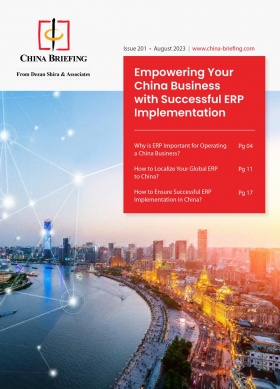China and Australia Reach Deal over Wine Tariffs Amidst Albanese’s Visit to Beijing
China and Australia have reached a consensus over tariffs imposed on Australian wine, fostering an optimistic outlook for their trade relationship. The timely announcement aligns with Australian Prime Minister Anthony Albanese’s upcoming visit to China and has already begun to positively impact the Australian wine industry.
Australia and China have reached a significant breakthrough in their prolonged wine tariff dispute, raising the prospects of a potential resumption of unrestricted wine trade as early as April 2024. This development coincides with Australian Prime Minister Anthony Albanese’s forthcoming visit to China, scheduled from November 4 to November 7, 2023, during which he aims to reinforce diplomatic ties with China, Australia’s key trading partner.
The suspension of Australia’s WTO wine complaint against China and China’s commitment to expedite the review of tariffs on Australian wine signal another positive turn in the diplomatic relations between Australia and China, which has been a focus for Albanese since assuming office in 2022.
As discussions continue, topics ranging from economic partnerships to climate change initiatives and people-to-people ties are expected to dominate the agenda, emphasizing the importance of sustained engagement between the two nations.
This pivotal breakthrough marks a significant turning point for Australia’s wine industry, which has grappled with formidable challenges, notably the pressing issue of overcapacity. The potential resumption of extensive wine exports to China is poised to serve as a fundamental catalyst for the industry’s resurgence. Notably, the recent lifting of restrictions on diverse Australian imports further solidifies the foundation for an invigorated phase of collaboration and fortified bilateral relations between Australia and China.
Background on tariffs and recent developments
The trade relationship between Australia and China faced substantial challenges in 2020, triggered by Australia’s call for an inquiry into the origins of COVID-19. This action led to retaliatory measures from Beijing, causing a strain that significantly affected Australia’s export-oriented economy. Notably, the wine industry, previously a key contributor to Australia’s exports to China, encountered significant setbacks with the imposition of tariffs in 2021, leading to a notable decline in wine exports to the country.
In a positive turn, China removed tariffs on Australian barley in September 2021, fostering hope for a potential resolution and a potential easing of the wine tariffs that had been in place. However, the negotiation process faced complexities as China proposed a comprehensive approach, linking the wine dispute with other trade issues. Despite this challenge, Australian Agriculture Minister Murray Watt emphasized the necessity of resolving the wine issue through dialogue, underscoring the government’s commitment to seeking an amicable solution, similar to the successful resolution of the barley dispute.
In the latest development, China’s Ministry of Commerce announced on Sunday that both nations have reached a consensus to settle not only the WTO wine dispute but also the dispute concerning Australian duties on Chinese wind towers.
Addressing the recent breakthrough, Prime Minister Albanese emphasized the importance of stabilizing Australia’s relationship with China.
Economic implications
The Australian wine sector, once flourishing with exports worth an impressive US$1.2 billion to the Chinese market, plummeted dramatically to a mere US$8 million in the aftermath of the imposed tariffs. However, the recent decision by China to review these tariffs has instilled a renewed sense of hope within the industry for a possible recovery.
CEO of Australian Grape and Wine Lee McLean expressed optimism about the potential market resurgence should the tariffs be lifted. He highlighted the need for concerted efforts by companies to rebuild relationships with their Chinese clientele, acknowledging the evolving nature of the Chinese market in recent years. Although McLean acknowledged the unlikelihood of a complete return to the previous US$1.2 billion mark, he emphasized the continued significance of the Chinese market for the Australian wine industry.
The preceding shifts in the political relationship between the two nations, which prompted the imposition of such tariffs, have led to tangible economic repercussions for the wine sector. Significantly, the sector has grappled with the challenges of seeking alternative markets to offset the losses incurred due to the disruption in trade with China. The CEO’s recognition of a discernible change in the political climate and the recent amicable exchanges with Chinese counterparts emphasizes the pivotal significance of this turn for the future sustainability of the sector.
The ongoing review of wine tariffs and the prior lifting of tariffs on Australian barley mark significant milestones, underscoring the impressive resilience and adaptability of the Australian wine industry in navigating the intricacies of international trade. These developments also reflect China’s commitment to resolving disputes and fostering strengthened trade relations with Australia, a valued and enduring partner.
Albanese’s visit to China
Australian Prime Minister Anthony Albanese’s forthcoming visit to China carries significant diplomatic weight, underscoring the importance of fostering robust relations with a crucial trade partner. Albanese, set to become the first Australian prime minister to visit China in seven years, aims to engage in crucial discussions with President Xi Jinping and Premier Li Qiang, focusing on the resumption of Australia’s wine exports following a breakthrough in the longstanding trade dispute.
In a bid to prioritize diplomatic engagements, Albanese’s visit serves as a crucial step towards fortifying ties between the two nations, with a particular emphasis, as mentioned, on restoring the previously hindered wine trade with China. Moreover, his trip holds broader implications beyond the wine dispute, encompassing discussions on critical topics of mutual importance. The visit also aligns with Australia’s enduring commitment to maintaining stable and mutually beneficial relations, emphasizing the significance of sustained dialogue and cooperation for both nations.
All in all, Albanese’s diplomatic overtures, coupled with the recent developments in the easing of tensions, signify a concerted effort to foster a conducive environment for continued collaboration and strengthened diplomatic ties.
As the visit draws near, the global spotlight remains fixed on the evolving dynamics of the Australia-China relationship, underscoring the critical importance of this diplomatic endeavor in shaping the trajectory of future bilateral engagement.
About Us
China Briefing is written and produced by Dezan Shira & Associates. The practice assists foreign investors into China and has done so since 1992 through offices in Beijing, Tianjin, Dalian, Qingdao, Shanghai, Hangzhou, Ningbo, Suzhou, Guangzhou, Dongguan, Zhongshan, Shenzhen, and Hong Kong. Please contact the firm for assistance in China at china@dezshira.com.
Dezan Shira & Associates has offices in Vietnam, Indonesia, Singapore, United States, Germany, Italy, India, and Russia, in addition to our trade research facilities along the Belt & Road Initiative. We also have partner firms assisting foreign investors in The Philippines, Malaysia, Thailand, Bangladesh.
- Previous Article China-Latin America and the Caribbean: Investment, Trade, and Future Prospects
- Next Article US-China Relations in the Biden Era: A Timeline








